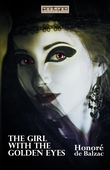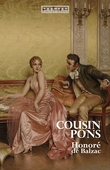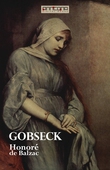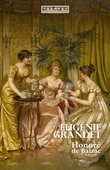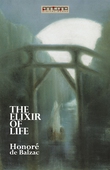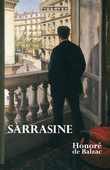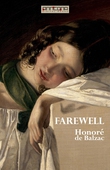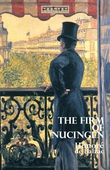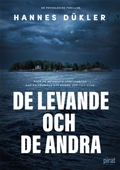
Lägg till önskelistan
Juana (The Human Comedy: Philosophical Studies) e-bok
Pris
45 kr
An Italian and Spanish love triangle with Napoleon's army on the march as the backdrop, 'Juana' is an all-action story about two morally corrupt Italian soldiers in the French army in Spain.
They lurk at the rear of the army and descend upon the women and the wealth of defeated towns. As they enter Tarragona, Montefiore spots the lovely Juana and sets about seducing her by inveigling himself with her family.
They fall for each other, but Montefiore gets caught in a lie and Juana ends their ...
E-Bok
45 kr
Pris
Förlag
Saga Egmont
Utgiven
13 September 2022
Längd
30 sidor
Genrer
Romaner, Deckare, Skönlitteratur
Språk
English
Format
epub
Kopieringsskydd
Vattenmärkt
ISBN
9788726668780
An Italian and Spanish love triangle with Napoleon's army on the march as the backdrop, 'Juana' is an all-action story about two morally corrupt Italian soldiers in the French army in Spain.
They lurk at the rear of the army and descend upon the women and the wealth of defeated towns. As they enter Tarragona, Montefiore spots the lovely Juana and sets about seducing her by inveigling himself with her family.
They fall for each other, but Montefiore gets caught in a lie and Juana ends their affair. Then, in a fit of pique, she marries his friend, the other Italian soldier, Diard.
It is a decision that sparks a pulsating plot featuring cruelty, a disintegrating marriage, gambling, murder, deception, and a dishonest doctor.
'Juana' is ideal for those who enjoy Bernard Cornwell's 'Sharpe' stories, which were made into a TV series, starring Sean Bean.
Honoré de Balzac (1799-1850) was a French novelist and playwright, most famous for a sequence of novels, collectively called 'The Human Comedy'. His signature style was a warts-and-all representation of post-Napoleonic French life, rich in detail and featuring complex, unfiltered characters.
The style means Balzac is regarded as one of the pioneers of European literary realism. He is named as an influence on writers including Emile Zola, Henry James, Charles Dickens, and Gustave Flaubert.
The first novel he published under his own name was 'Les Chouans' in 1829. In 1834 he hit upon the idea of grouping his novels together to record all of society. The result, over a period of years, was 'The Human Comedy', which comprised three categories: 'Analytic Studies'; 'Philosophical Studies'; and 'Studies of Manners'.

